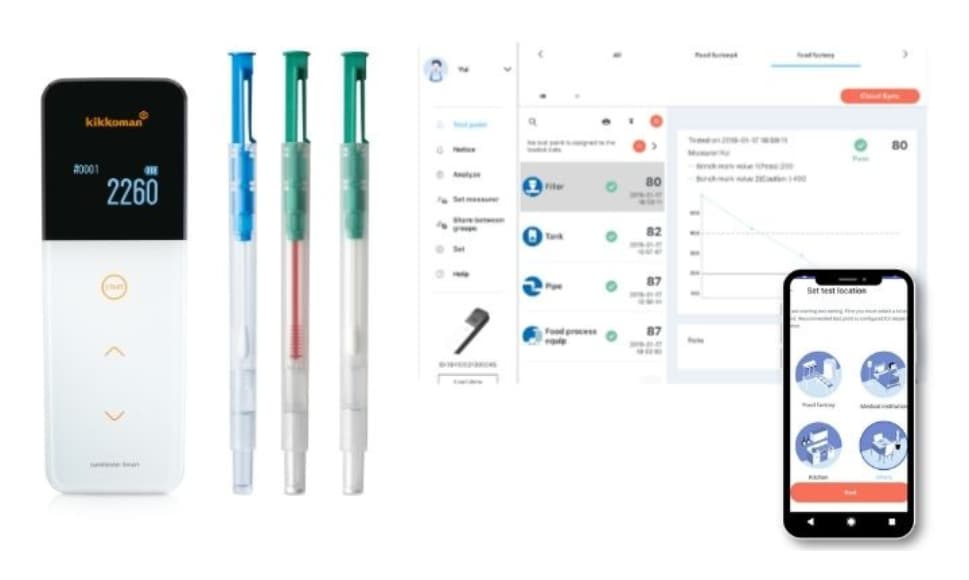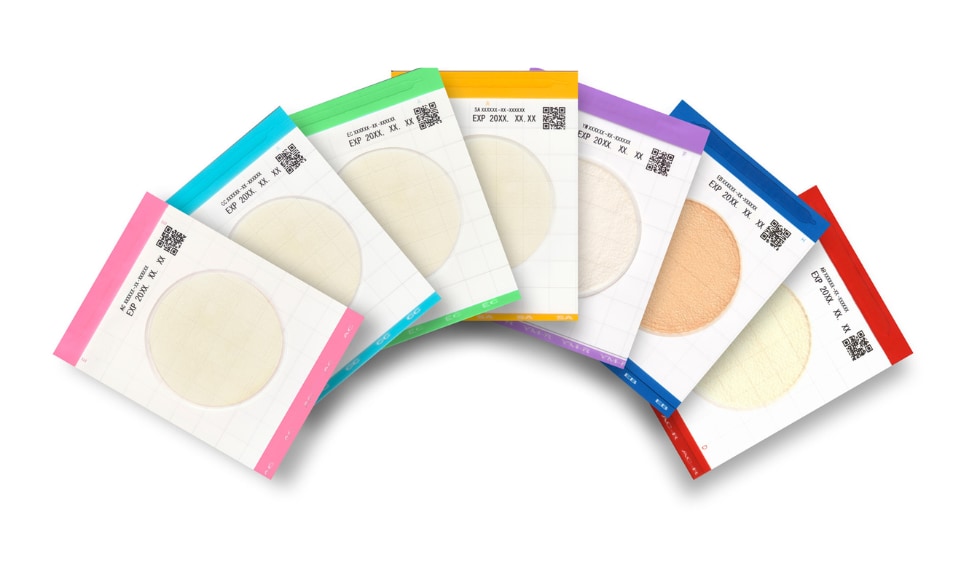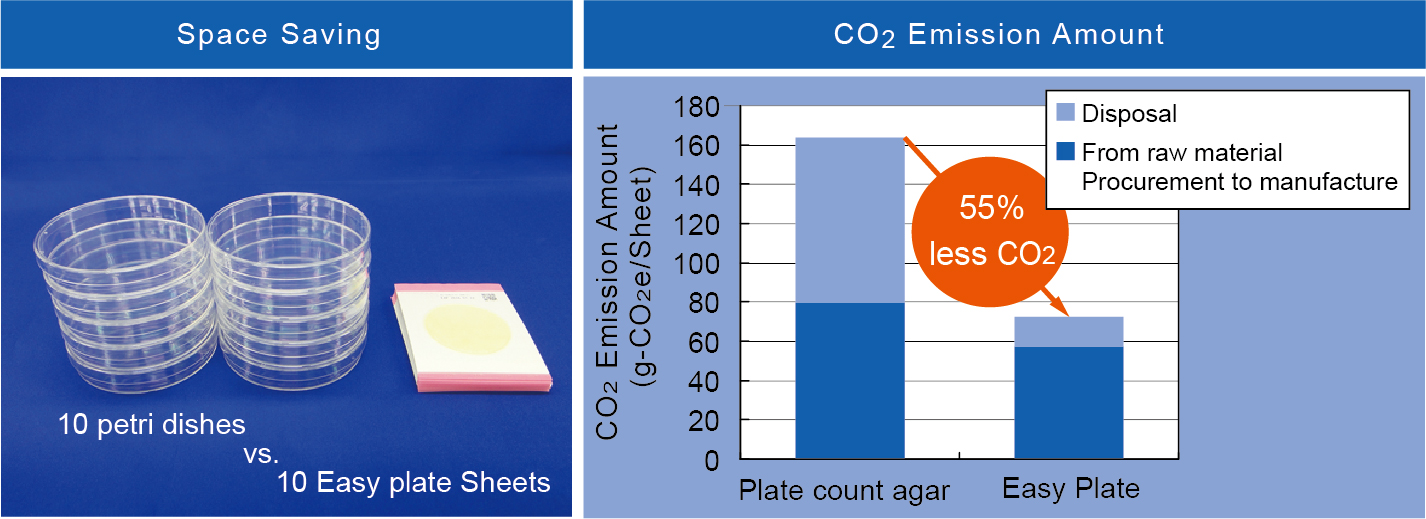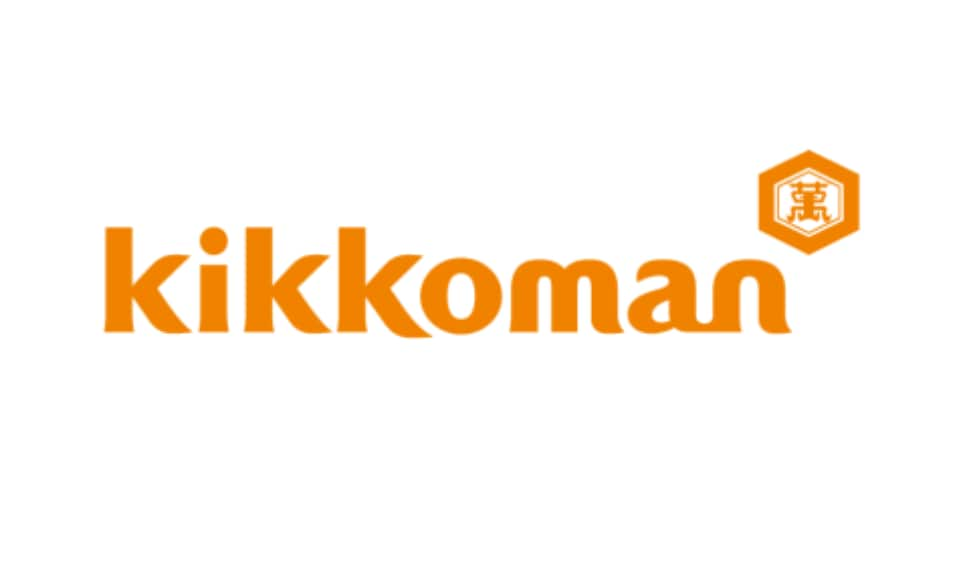Kikkoman Group Environmental Philosophy
The Kikkoman Group will respect the working of nature and contribute to the realization of a society comfortable to live in through our corporate activities keeping harmony with the environment.
Established on 19 October 1992, revised on 10 May 2007
LuciPac A3 Series – Transition to 100% Biomass-Based Polypropylene

Beginning in September 2023, Kikkoman Biochemifa Company is gradually replacing conventional petroleum-based polypropylene used in the LuciPac A3 swabs with 100% biomass-based polypropylene based on the mass balance approach, supplied by ITOCHU PLASTICS INC. This material, produced by SK geo centric Co., Ltd. (Korea), uses bionaphtha derived from renewable raw materials such as:
- Agricultural and food-industry waste
- Residues
- Recycled cooking oil
This initiative supports a reduction in fossil resource dependency and contributes to lower CO2 emissions throughout the product life cycle.
Certified Sustainability: ISCC PLUS
LuciPac A3’s biomass-based polypropylene has received ISCC PLUS certification — a global standard ensuring sustainability and traceability from raw material to final product.
What is ISCC PLUS?
ISCC (International Sustainability and Carbon Certification) is a globally recognized system verifying that bio-based and recycled materials are responsibly sourced, tracked, and processed across the supply chain.
The certification ensures full traceability and transparency, supporting a circular and bio-based economy.
Mass Balance Approach
A scientifically verified method in which bio-based and fossil-based raw materials are mixed during manufacturing, with sustainability attributes assigned proportionally to the final product based on input volumes — ensuring reliable accounting of renewable content.
- Renewable Resources Biomass-Based Polypropylene Adopted 100% for LuciPac Series. | Kikkoman Biochemifa
- Kikkoman Biochemifa Company has decided to introduce the mass balance approach! The effectiveness of the mass balance approach plastics in manufacturing products for the world. - Equally beautiful.
- ISCC-L-81 ISCC System (iscc-system.org)-LuciPac
Easy Plate Series – Designed for Environmental Responsibility

Compared to conventional petri dishes, Easy Plate requires only 1/20th of the space and produces 55% less CO2 emissions.

| Benefit | Description |
|---|---|
| Space Saving | 10 petri dishes = 10 Easy Plate sheets (1/20th of the space required) |
| Waste Reduction | Lighter, thinner design drastically cuts down on plastic waste. |
| CO2 Reduction | 55% lower CO2 emissions from raw materials, production, and disposal. |
| Efficient Logistics | Compact packaging reduces shipping emissions and storage footprint |
According to research by DNP, Easy Plate generates approximately 55% less CO2 compared to conventional plate count agar.
Prepared Media Plate (Easy Plate)|Test kit ❘ Kikkoman Biochemifa Company
Easy Plate Series – Reducing Environmental Impact Through Advanced Barrier Film Technology

To reduce environmental impact while maintaining high packaging performance, we have replaced conventional aluminum foil–based specifications with a transparent vapor-deposited barrier film. This functional film provides superior moisture and oxygen barrier properties, helping protect product quality and retain freshness through excellent gas and odor barrier performance.
In addition to its high transparency and low haze—allowing easy detection of foreign materials or sealing defects—the film supports a wide range of applications, including retort and microwave processing, direct printing, and lamination with other films. Compared with aluminum foil and aluminum metallized films, this barrier film offers significantly lower environmental impact, with reduced carbon footprint and energy consumption during production.
It is also halogen-free, producing no toxic gases during incineration, and eco-friendly options using bio-based PET are available, supporting safer, more sustainable packaging solutions across industries.
DNP's Transparent Barrier Film | Products and Services | DNP Group
Digital User Manuals

Reducing Paper Use Through Digitalization
As part of our ongoing sustainability initiatives, Kikkoman Biochemifa is transitioning from printed instruction manuals to digital user manuals for the following product lines:
- LuciPac A3 Series
- Easy Plate
- Histamine Test
By providing user manuals as electronic files instead of printed inserts, we aim to reduce paper consumption and packaging waste while improving accessibility for users worldwide.
What’s Changing
- Printed instruction manuals will no longer be included in product packaging
- User manuals will be provided in digital format (electronic files)
- Package materials are updated to include essential notices and guidance
During the transition period, shipments may include both previous and updated packaging designs.
Environmental & Operational Benefits
- Reduced paper usage and lower packaging waste
- Lower environmental impact associated with printing and distribution
- Improved access to the latest instructions, updates, and multilingual content
- Faster updates to ensure users always reference the most current information
Environmental Initiatives


